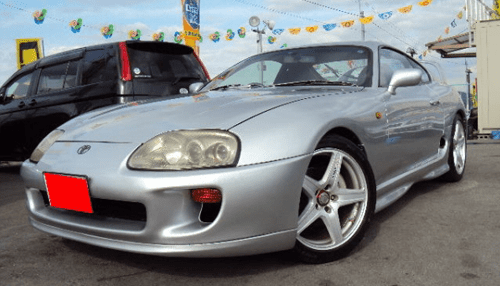The Global used car business market is expected to grow at an annual rate of 12.81% by the year 2024, which makes it a rapidly growing market. This represents an ideal opportunity for everyone with a nose for business and an interest in four-wheelers. The market is still chaotic with unorganized players who make revenues through commissions and don’t own any inventory. Such a situation leaves space for organized salesmen who can acquire an edge over their messy counterparts.
It is a competitive market, though, which is why it requires skills and knowledge about the vehicles and the buyers. So, if you want to start your own used car business, here are some elements of making it successful.
1. Having a business and financial plan
Regardless of the type of business you are starting, it is always imperative to begin your endeavor with a business and a financial plan. Both of these will put your future business into perspective and you will have a clear image of every next step. Business and financial plans can be adapted when you sort everything out, but at the beginning, they should be made based on the vision you have for your dealership, a strategy, a market analysis, its size, etc.
If you are planning on looking for investors, you need to do your best to create comprehensive used car business plans. You also need to have proper cash management as when someone sells their car for cash, they sell it cheaper and you get a better deal.
2. Choosing a brand or a niche
If you decide to sell a little something of every brand and every style, you will end up in the same mess most of today’s dealerships are. It is always better to specialize in something specific to build a trustworthy relationship with your customer base. You can focus on classic cars, luxury automobiles, foreign vehicles, or electric cars. If you want to play it safe, you can choose brands that the average buyer sees as reliable. For example, the brand with the best resale value in 2019 according to the Kelley Blue Book was Toyota.
Other brands the average used car buyer trusts are Honda and Subaru. You can check the best deals when you take Subaru insurance here. Once you are sure about your decision, it will be easier for you to find a good dealer.
3. Investing in your product
Similar to the house turnover business, selling used cars requires some investments on your side in terms of vehicle functionality and appearance. The buyers will appreciate (and pay more) upgrades such as improving the car’s suspension, adding a cold air intake, adding a stabilizer bar, and replacing the worn-out upholstery. Furthermore, you can get more horsepower from the engines by upgrading performance exhausts to tuned (better performance and improved sound) or silent (the same as tuned ones but with no sound at all).
For most of these things, you will need an experienced in-house mechanic. But, if you are not planning on hiring just yet, you can get similar benefits by establishing a relationship with a local mechanic.
4. Getting the right price
For people who buy used cars fresno, unless they are buying classic automobiles, the price is the most definitive factor. If considering the invested money and the value of the car, it sounds reasonable to you, consider selling for $5.000 or less. Research the prices of the competition and adjust their model. Set the lowest amount for which you would sell each car in case of negotiation. Also, do your best to give your clients what they paid for, and even something extra.
For instance, earn their trust by offering a reasonable warranty, giving them tips about taking care of the vehicle, telling them everything to know about spare tyre changing, etc. This way, the next time they opt for a new car, they will come to you again.
5. Complying with the law
Opening a dealership in any state necessitates obtaining a license to sell vehicles, which entails fulfilling a range of requirements that can vary in their rigor, complexity, and cost. These prerequisites encompass several crucial elements, including meeting specific location criteria, undergoing a thorough criminal background check, acquiring an Employee Identification Number from the IRS, obtaining a state tax number, and securing an insurance policy coupled with an auto dealer surety bond agreement.
The inclusion of an auto dealer surety bond agreement is particularly significant as it acts as a form of financial protection for the dealership and its customers.
In the event of non-compliance with applicable laws and regulations or any breach of contractual obligations, the surety bond ensures that affected parties receive compensation for any financial loss or damages incurred. This bond assures both the state and customers that the dealership is committed to ethical practices, financial stability, and fair business conduct. Consider visiting bondingsolutions.com, if you find yourself in need of an auto dealer surety bond agreement and navigate the licensing process effectively.
Additionally, successfully opening a dealership requires completion of a state-mandated dealer training course, undergoing premises inspection, submitting a comprehensive dealer application form, and covering associated application and licensing fees. It is crucial to note that ongoing compliance with various state and federal laws is paramount, necessitating the allocation of resources for legal fees and taxes to ensure continued adherence to regulatory obligations.
6. A good dealership location
Finally, where your dealership is located is a crucial factor in your profit. If you are flexible enough, you can even change the state because some have less complicated legal procedures and a better business climate. Regardless of that, the location of your showroom needs to be visible and easily reachable. Don’t settle for an obscure street far from the roadside. Instead, opt for a high-traffic area.
These were six key elements of the successfully used car business, but remember they are only a foundation. Once you start a used car business, you will be able to deal with the finesses that will distinguish you from your competitors.



